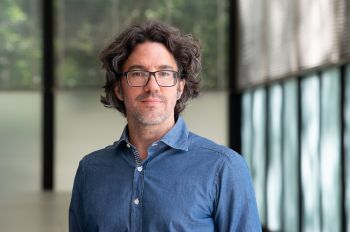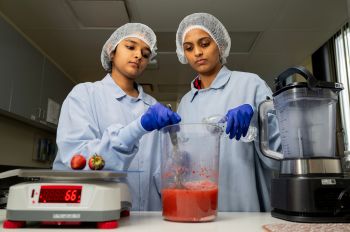Physics’ Jeff Wereszczynski Wins Prestigious NSF CAREER Award
Jeff Wereszczynski, assistant professor of physics, won a prestigious Faculty Early Career Development (CAREER) Award from the National Science Foundation. He won for his proposal “The Effects of Post-translational Modifications and Histone Variants on Chromatin Fiber Dynamics.”
Wereszczynski’s group focuses on using and developing computational biophysics techniques to understand how the function of biological molecules is linked to their structure and dynamics. To do this, they perform intensive simulations of large biomolecular complexes that model their motions at the atomic level based upon rigorous statistical mechanical techniques. One system of particular interest is chromatin, which is the complex of DNA and protein molecules that stabilize the genome and dynamically controls gene expression in cells.
In this NSF CAREER Award-winning project, the Wereszczynski group will address the effects of two major classes of chromatin remodeling factors with state-of-the-art computer simulations. These studies will reveal the physical basis by which cells modulate the structure and dynamics of chromosomes, and how this affects the vital process of gene expression. This project will also expose students throughout the educational system to the latest in biophysics research. Wereszczynski is actively working with the College of DuPage to mentor local community college students in summer research opportunities to help encourage the pursuit of bachelor’s and advanced degrees in STEM by students from underrepresented groups.
In addition, he will develop courses that expose undergraduate and pre- and post-doctoral students to cutting-edge biophysics research and provide them with hands-on training, as well as work to educate future middle- and high-school teachers.
The NSF CAREER Awards honor early career-development activities of teacher-scholars who most effectively integrate research and education within the context of the mission of their organization. Such activities should build a firm foundation for a lifetime of integrated contributions to research and education.




